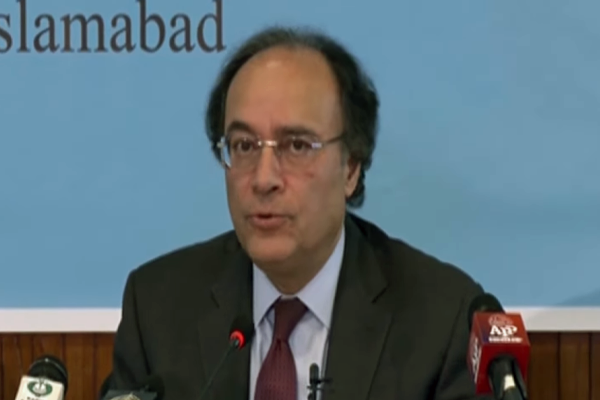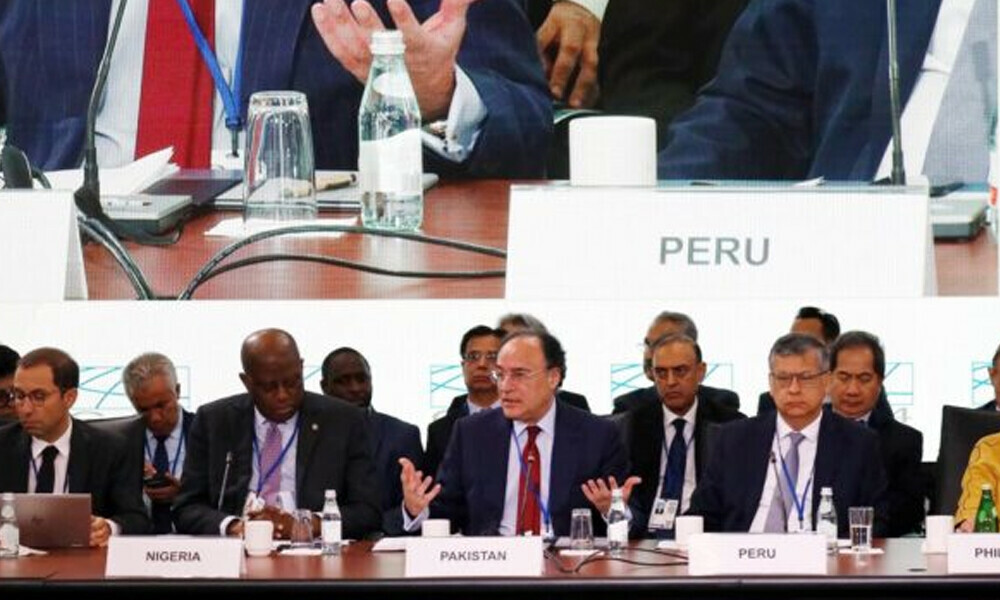PTBP Web Desk
Finance Minister Muhammad Aurangzeb has announced a strategic decision to transfer the tax policy unit from the Federal Board of Revenue (FBR) to the Ministry of Finance. This change, highlighted during a meeting with the Pakistan Business Council (PBC), underscores the government’s intent to refine its tax policy framework to better align with long-term economic goals such as enhancing investment, job creation, boosting exports, and ensuring sustainable and equitable economic growth.
The meeting, which took place on Monday, was a pivotal part of the ongoing consultations ahead of the Federal Budget for the fiscal year 2025-26. The PBC delegation, led by Chairman Shabbir Diwan and including Vice Chairperson Zeelaf Munir and CEO Ehsan Malik, brought forth a wealth of ideas aimed at creating a robust fiscal policy. This session was also graced by the presence of key governmental figures like the Secretary Finance, Chairman FBR, and other senior officials from the Finance and Revenue Division, indicating the high level of importance placed on these discussions.
Aurangzeb expressed profound concerns regarding Pakistan’s current tax-to-GDP ratio, which languishes at a mere eight to nine percent. He labeled this figure as unsustainable, not only for Pakistan’s fiscal health but also for its standing on the global stage. The minister outlined an ambitious target to elevate this ratio to 13.5 percent within the next three years, a move he believes will be achieved through innovative methods like expanding the tax base, enhancing technological leverage, improving data analytics, and simplifying tax procedures.
The transfer of the tax policy unit to the Ministry of Finance is not just an administrative shuffle but a strategic decision to protect tax policy formulation from the immediate pressures of revenue collection. This shift aims to foster a more equitable, efficient, and optimal taxation system, which Aurangzeb sees as crucial for nurturing a business-friendly environment in Pakistan.
He reiterated the government’s view that the private sector is the engine of economic growth. By creating an enabling environment for businesses, the government seeks to stimulate investment and entrepreneurial activities, which are vital for job creation and economic vitality.
During the session, the PBC delegation presented a comprehensive array of proposals for fiscal policy and tax regimes for the upcoming fiscal year and beyond. These suggestions were designed not only to meet immediate economic needs but also to align with broader objectives of sustainable development and social equity.
Aurangzeb showed appreciation for the insights and proposals from the PBC, ensuring that FBR teams would collaborate closely with the council in the coming days to scrutinize and potentially integrate these suggestions into the national fiscal strategy. This collaborative approach hints at a more inclusive policy-making process, where input from business leaders is actively sought to shape policies that reflect real-world business dynamics.
The restructuring of how tax policies are formulated in Pakistan could have far-reaching implications. By moving the tax policy unit to the Ministry of Finance, there is a clear intent to insulate policy decisions from daily revenue collection pressures, potentially leading to more strategic, long-term-oriented fiscal policies. This move also signifies a commitment to transparency and efficiency in tax governance, which could boost investor confidence and stimulate economic activities.
This strategic shift, while promising, will require careful implementation and ongoing dialogue between government bodies and business sectors to ensure that the policy changes truly reflect the needs and capabilities of Pakistan’s economy. The government’s resolve to increase the tax-to-GDP ratio, coupled with these structural changes, might just set the stage for a more prosperous and stable economic future for Pakistan.




